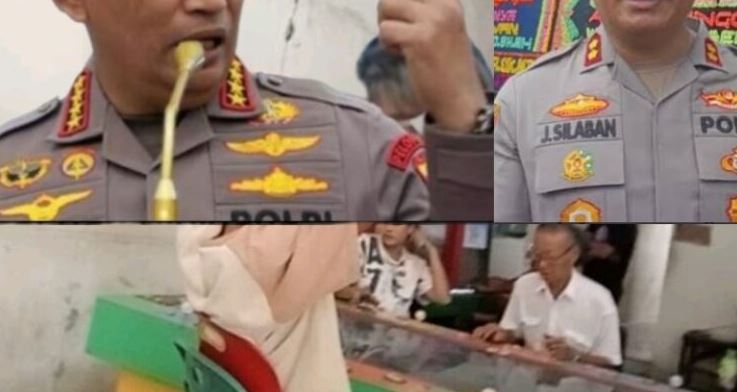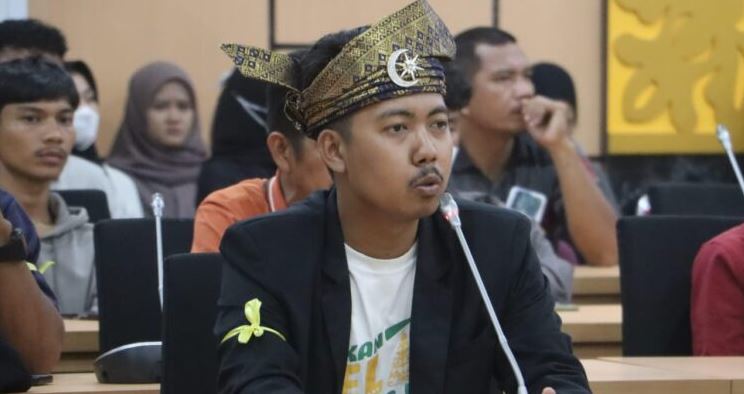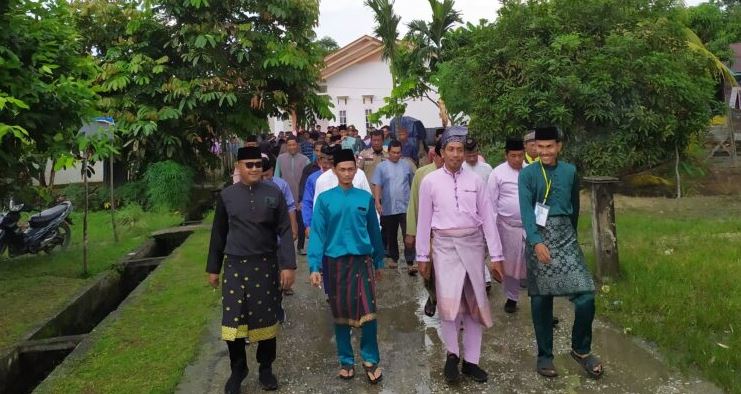Pwi Pusat Drops Raja Isyam Doni And Anthony From Official Website
The recent decision by the Indonesian Journalist Association (PWI Pusat) to remove Raja Isyam, Doni, and Anthony from their official website has sparked considerable discussion within the media industry. PWI Pusat, a well-known and highly regarded journalistic organization in Indonesia, plays a crucial role in maintaining ethical journalism standards and ensuring media integrity. The removal of these three individuals has led to speculation regarding the reasons behind the action, the potential consequences for the organization, and the impact on journalism in Indonesia.
The decision raises questions about transparency and accountability within journalistic institutions. When such prominent figures are suddenly removed from an organization’s official platform, it naturally invites scrutiny. Was this a disciplinary measure? Did it result from internal disagreements, ethical violations, or political pressure? The lack of detailed explanations from PWI Pusat has only fueled speculation.
Moreover, the incident has drawn reactions from various media professionals and organizations. Some view it as a necessary step to uphold journalistic integrity, while others see it as an arbitrary decision that undermines press freedom. Regardless of perspective, this event has significant implications for the future of media regulation and the credibility of PWI Pusat itself.
This article aims to explore the background of PWI Pusat, the professional histories of Raja Isyam, Doni, and Anthony, the possible reasons for their removal, and the responses from the journalism community. Additionally, it will analyze the broader impact of this decision on Indonesian journalism and conclude with potential future developments. Understanding this case is essential, as it sheds light on the internal workings of journalistic institutions and their influence on press freedom in Indonesia.
Background of PWI Pusat
The Indonesian Journalist Association, known as PWI Pusat, is one of the most influential journalism organizations in Indonesia. Established in 1946, PWI Pusat has played a vital role in the development of journalism in the country. The organization is responsible for setting ethical standards for journalists, protecting press freedom, and fostering professional growth within the industry. Over the years, PWI Pusat has been at the forefront of major media-related discussions and has contributed to shaping Indonesia’s media landscape.
PWI Pusat’s mission is to uphold the integrity of journalism by ensuring that journalists adhere to ethical guidelines and professional standards. It provides training, organizes events, and collaborates with media organizations to promote responsible journalism. The association also works closely with the government and other regulatory bodies to establish policies that protect journalists and maintain media independence. However, this close relationship with authorities has sometimes led to criticism, with some accusing PWI Pusat of being influenced by political interests.
@jendelanegeri.co Jika berwisata ke Kabupaten Kampar di Provinsi Riau, tidak lengkap rasanya kalau tak mengunjungi objek wisata Kampung Patin. Pasalnya, Kampung Patin ini merupakan sebuah tempat wisata, dimana untuk melihat sentra pengolahan ikan asap atau ikan salai yang berbahan dasar ikan patin. Objek wisata Kampung Patin ini, berada di Desa Koto Masjid, Kecamatan XIII Koto Kampar, Kabupaten Kampar, Riau. Letak desa tersebut sekitar tiga kilometer dari jalan lintas sumatera penghubung Riau-Sumatera Barat. #kampar #riau #ikanpatin #ikanasap
The organization has a strict membership policy, requiring journalists to meet certain qualifications and adhere to ethical standards. Over the years, PWI Pusat has taken disciplinary actions against members who have violated journalistic principles, including suspensions and removals. These actions are intended to maintain the credibility of the association and reinforce public trust in journalism.
Despite its strong reputation, PWI Pusat has faced controversies in the past. Some critics argue that the organization does not always act transparently when making major decisions. This lack of transparency has led to debates about whether PWI Pusat truly serves the interests of journalists or if it sometimes acts to protect institutional or political agendas.
The removal of Raja Isyam, Doni, and Anthony from the official website is just the latest development in PWI Pusat’s history. Given its reputation and influence, any decision made by the organization carries significant weight in Indonesia’s media industry. Understanding the background of PWI Pusat helps provide context for this recent action and its potential implications for journalism in the country.
Profiles of Raja Isyam, Doni, and Anthony
Raja Isyam, Doni, and Anthony are three well-known figures in the Indonesian journalism industry. Each of them has contributed significantly to the field, holding influential positions and working on important stories that have shaped public discourse. Their removal from PWI Pusat’s official website has raised questions about their professional standing and the reasons behind this sudden action.
Raja Isyam is recognized for his investigative journalism and in-depth reporting on political and social issues in Indonesia. Throughout his career, he has uncovered various cases of corruption, human rights violations, and government inefficiencies. His commitment to journalistic integrity has earned him both praise and criticism, as his work has often exposed uncomfortable truths. Before his removal, he was considered a respected member of PWI Pusat, actively involved in discussions on media ethics and press freedom.
Doni has built his career as a media strategist and journalist with expertise in digital transformation. He has worked with multiple media organizations, helping them adapt to the evolving digital landscape. His role in shaping online journalism in Indonesia has made him a key player in the industry. Known for his advocacy of media independence, Doni has frequently spoken out against censorship and government control over the press. His removal from PWI Pusat’s website has led to speculation about whether his outspoken views played a role in the decision.
Anthony, on the other hand, has a background in broadcast journalism and has been a prominent voice in Indonesian media. He has hosted major news programs and interviews with political figures, often discussing critical issues facing the nation. His journalistic approach has been characterized by in-depth analysis and balanced reporting. As a senior figure in the industry, his association with PWI Pusat was seen as a mark of credibility. His sudden removal has surprised many, leading to concerns about the organization’s motives.
Together, these three individuals represent different aspects of journalism in Indonesia—investigative reporting, digital media innovation, and broadcast journalism. Their removal from PWI Pusat’s official website is a significant event, raising questions about the criteria used for such decisions and the possible implications for their careers. Understanding their backgrounds helps in assessing whether their removal was justified or whether it signals a deeper issue within PWI Pusat’s internal structure.
Reasons for Their Removal
The removal of Raja Isyam, Doni, and Anthony from PWI Pusat’s official website has led to widespread speculation about the reasons behind the decision. While no official explanation has been provided, several possible factors could have contributed to their exclusion.
One potential reason is an alleged violation of journalistic ethics. PWI Pusat, as a professional organization, has strict ethical guidelines that its members are expected to follow. If any of these individuals were found to have engaged in misconduct—such as biased reporting, conflicts of interest, or ethical breaches—it could justify their removal. However, without an official statement from PWI Pusat, it remains unclear whether ethical violations played a role.
Another possible explanation is political pressure. Journalism in Indonesia, like in many other countries, is often intertwined with political interests. If these individuals were involved in investigative reporting or critical journalism that challenged powerful figures, their removal from PWI Pusat’s platform might have been influenced by external forces. In the past, journalists in Indonesia have faced censorship and intimidation for reporting on sensitive issues, so this possibility cannot be ruled out.
Internal conflicts within PWI Pusat could also be a factor. Organizations of this scale often experience disagreements over leadership, policies, or professional standards. If Raja Isyam, Doni, or Anthony had conflicts with key figures within PWI Pusat, it might have led to their exclusion. This would not be the first time internal disputes have resulted in the sidelining of certain members.
Lastly, administrative or procedural reasons could have played a role. It is possible that their removal was due to membership status updates, restructuring within the organization, or a review of active contributors on the website. If any of them failed to meet certain membership renewal requirements or no longer held official roles within PWI Pusat, this could explain their absence.
Regardless of the true reason, the lack of transparency from PWI Pusat has fueled further debate. Without a clear statement, the removal of these three individuals leaves room for speculation and concern about the organization’s decision-making process and commitment to press freedom.
Reactions from the Journalism Community
The removal of Raja Isyam, Doni, and Anthony from PWI Pusat’s official website has drawn mixed reactions from the journalism community. Journalists, media organizations, and press freedom advocates have all weighed in on the issue, expressing a range of opinions.
Some journalists have defended PWI Pusat’s decision, arguing that the organization has the right to regulate its membership and enforce professional standards. If Raja Isyam, Doni, or Anthony were found to have violated ethical guidelines, their removal could be seen as a necessary step to uphold journalistic integrity. Supporters of this perspective believe that maintaining credibility is crucial for journalism, and any individuals who do not adhere to ethical practices should be held accountable.
On the other hand, many media professionals and press freedom organizations have expressed concern over the lack of transparency surrounding the decision. The absence of a clear explanation from PWI Pusat has led to suspicion and speculation. Some critics believe that the removal may be politically motivated or driven by internal power struggles rather than ethical considerations. In a country where press freedom is still under threat, such actions raise alarms about potential censorship or suppression of dissenting voices.
Social media has played a significant role in amplifying reactions to the issue. Many journalists and media personalities have taken to Twitter, Facebook, and other platforms to voice their opinions. Some have called for PWI Pusat to provide a public explanation, while others have used the incident to highlight broader concerns about media freedom in Indonesia. The discussion has also extended to online forums and news websites, where debates about the role of professional organizations in journalism continue.
International media watchdogs have also taken note of the situation. Organizations such as the Committee to Protect Journalists (CPJ) and Reporters Without Borders (RSF) have previously criticized restrictions on press freedom in Indonesia. If PWI Pusat’s decision is perceived as an attempt to silence critical voices, it could draw negative attention from global press advocacy groups.
Overall, the reactions to this event demonstrate the importance of transparency and accountability in journalistic institutions. Whether justified or not, PWI Pusat’s decision has raised significant concerns about the future of journalism in Indonesia and the extent to which journalists can operate independently without fear of sudden exclusion.
Implications for Indonesian Journalism
The removal of Raja Isyam, Doni, and Anthony from PWI Pusat’s official website has broader implications for the journalism industry in Indonesia. This incident highlights several key issues that could affect the future of media professionals and journalistic organizations in the country.
One of the most immediate concerns is the impact on press freedom. If PWI Pusat’s decision was influenced by political pressure or an attempt to suppress critical voices, it could set a dangerous precedent. Journalists who report on sensitive topics might become more cautious, fearing that they could be removed from professional organizations or face other forms of retaliation. This could lead to increased self-censorship and a decline in investigative journalism.
The credibility of PWI Pusat itself is also at stake. As one of Indonesia’s leading journalism organizations, PWI Pusat is expected to uphold transparency, fairness, and accountability. However, the lack of clear communication regarding this decision raises doubts about its commitment to these principles. If media professionals begin to perceive PWI Pusat as an organization that operates without transparency, it could lose credibility and influence within the industry.

This situation also raises questions about the role of journalistic organizations in regulating the media. While such organizations are meant to maintain ethical standards, there is always a risk that they may be used as tools for control. If decisions about membership and representation are made without proper justification, it could undermine the very purpose of such institutions.
Another potential impact is on public trust in the media. The way this situation unfolds will affect how audiences perceive journalism in Indonesia. If people see PWI Pusat’s actions as politically motivated or unfair, it could contribute to growing skepticism about the reliability and independence of journalists. In a time when misinformation is a major concern, maintaining public trust in credible journalism is more important than ever.
Ultimately, this incident serves as a reminder of the challenges facing Indonesian journalism. Whether the removal of these three individuals was justified or not, it underscores the need for greater transparency, stronger protections for journalists, and a commitment to press freedom. How PWI Pusat and the broader media industry respond to this situation will shape the future of journalism in Indonesia.
The removal of Raja Isyam, Doni, and Anthony from PWI Pusat’s official website has generated significant debate within the journalism community. While the exact reasons behind their exclusion remain unclear, this event has raised important questions about transparency, press freedom, and the role of journalistic organizations in Indonesia.
PWI Pusat, as a key institution in the country’s media landscape, has a responsibility to uphold ethical standards while also ensuring fairness and accountability. However, the lack of a clear explanation for this decision has led to speculation and concerns about political interference or internal conflicts. The reactions from journalists, media organizations, and the public indicate that this issue is far from settled.
Looking ahead, this incident could have lasting consequences for Indonesian journalism. It highlights the need for clearer policies on membership and representation within professional organizations. It also serves as a reminder of the importance of press freedom and the dangers of censorship or suppression.
For PWI Pusat, addressing this issue transparently could help restore trust and credibility. If the organization provides a clear rationale for its decision and ensures that its actions align with journalistic principles, it could reinforce its reputation as a defender of media integrity. However, if doubts and unanswered questions persist, it may weaken PWI Pusat’s standing within the journalism community.
In conclusion, this situation serves as a crucial moment for Indonesian journalism. It calls for greater accountability, stronger protections for press freedom, and a renewed commitment to ethical journalism. How this issue unfolds will shape the future of media in Indonesia and determine the level of trust that journalists and the public place in professional institutions like PWI Pusat.
EN -Bu Guru Salsa Viral New Video Telegram
Video Bokeh Japanese Word Origin Full
Telegram Viral Video Museum
Bu Guru Salsa Viral 5 Menit
Bu Guru Salsa Full Body 27 Video
The Phenomenon of the Video Viral Syakirah How One Clip Sparked Global Attention
Understanding the “GirlyLana Leak” Implications, Reactions, and Lessons for Online Content Creators



 | Sitemap | Mail
| Sitemap | Mail